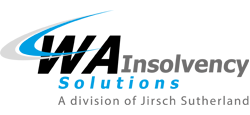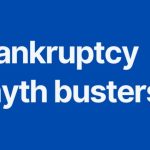An Aussie startup that likens itself to realestate.com.au or carsales.com.au (but rather than houses and cars it’s for businesses) is changing the way buyers connect with business sellers – and accountants and insolvency specialists are playing a vital role.

Founded in May 2017 by Edward Scott and Simon Plummer – a former multi-national mergers and acquisitions specialist turned small business owner, and an insolvency accountant respectively – Resolve Australia is an easy-to-use platform for buying and selling businesses.
“Resolve was established to make buying, selling or investing in private businesses cheaper and easier,” explains Edward.
And recent insolvency legislation reforms helped spur the development of Resolve, he says.
“As part of the government’s National Innovation and Science Agenda (NISA), certain changes are designed to encourage directors to seek professional advice earlier and lend more chance to ameliorate businesses from distress,” Edward explains.
“The reforms mean that practitioners are increasingly able to engage with creditors digitally. To support practitioners to do this, Resolve developed and released a digital creditor portal for Administrators to manage creditor engagement from a cloud-based portal and streamline proof of debt submissions, adjudication and related administration.
“We wanted to digitally replicate the existing distressed business market to enable all market participants engage more efficiently,” he says. “Resolve believes that Australia’s distressed mergers and acquisitions (M&A) market lags well behind other nations such as the US, partly due to recently amended laggard legislation and the absence of a medium for buyers, sellers and investors to interact.”
Edward believes this is problematic, because an inaccessible, opaque market leads to market inefficiency, which is reflected in the statistics for average credit returns (92 per cent of creditors are returned 0 cents in the dollar).
“With Resolve as the medium, more distressed businesses are able to connect with buyers, who have demonstrated an insatiable appetite for assets since Resolve has launched, resulting in distressed M&A and higher turnaround rates,” he says.
Moreover, he says, amendments to ‘ipso facto’ clauses should enable more businesses to retain value and thus be turned around, increasing the marketable stock for Resolve’s distressed market.
Reducing the social and economic impacts of corporate insolvencies
Resolve launched into the distressed market to support insolvency practitioners and business owners sell or re-capitalise businesses to reduce the social and economic impacts of corporate insolvencies. And in the current volatile real estate market, there may be more pain ahead, explains Edward.
“With two-thirds of small-medium sized businesses relying on residential property as collateral, the cooling property market is an enormous risk to Australia’s economy and business sector,” he says. “Democratising the business market will support more businesses to sell or re-capitalise before it’s too late for them to do so, which will help business owners to avoid or minimise the damage to the business, creditors and people whose livelihood is reliant on the business.”
Resolve connects interested parties with sellers to engage off-platform, relying on feedback to track success rates. At least six businesses have sold to buyers introduced to Resolve, however an additional 26 listings have received indicative offers from buyers introduced through the platform. Despite a money-back guarantee, Edward claims they are yet to receive a request for credit from a dissatisfied client.

The platform is designed for a collaborative approach and Edward says it relies on the continued use of all firms across the industry, centralising deals in a single market for buyers, investors and other participants to connect. The platform has supported 33 accounting and insolvency firms since it launched, including Jirsch Sutherland, which has published several listings such as Snackable TV.
“Innovative firms such as Jirsch Sutherland lead the industry demonstrating modern approaches to restructuring and insolvency for the benefit of creditors,” says Edward.
Jirsch Sutherland Partner Chris Baskerville says Resolve digitally streamlines the process from tracking expressions of interest through to settlement. “It’s an easy-to-use platform that enables you to easily track the market response with listing analytics while the information can be used in court.”
Retail and construction ‘top of the list’
Resolve has supported a diverse and relatively even spread of industries. Retail and construction are the top and second most represented industries respectively, something to be expected given they’re the most popular industries by business registration.

The company, whose advisory board includes former ANZ CEO Mike Smith, renowned finance journalist and entrepreneur Alan Kohler, and AVCAL CEO Yasser El-Ansari, has recently expanded to support non-distressed businesses find buyers and helping accountants who have been asked by clients how to sell their business.
“Resolve has a large buy-side network comprising high-net-worth individuals, family offices, private equity funds, accountants, lawyers and general businesses that are automatically notified when relevant listings are published. In addition, we have a corporate finance team that prospects on behalf of each listing to ensure relevant parties are notified of opportunities – both within Australia and internationally.
“Buyers can access Resolve, express interest and sign non-disclosure agreements digitally, which connects buyers and sellers directly at no cost.”
Edward also highlights the growing number of ageing business owners looking to sell their businesses to fund their retirements. Resolve has seen anecdotal evidence of business owners increasingly shutting down their businesses to sell plant and equipment and commercial property to fund retirements off the proceeds.
“There’s an estimated 350,000 businesses set to hit the market in the next five years due to owners retiring,” Edward says. “At a macro-level, this will have an enormous impact on production, the labour market, and the economy at a regional and national level.”











